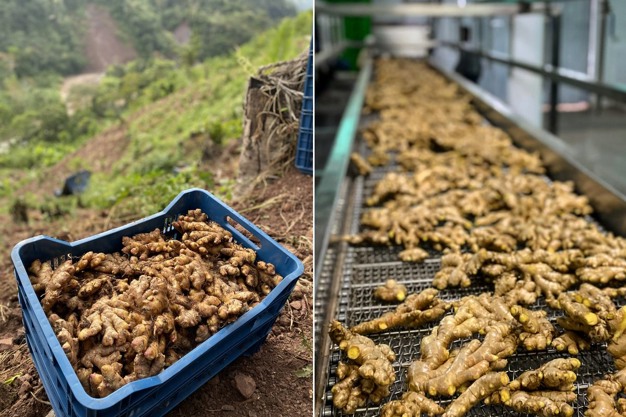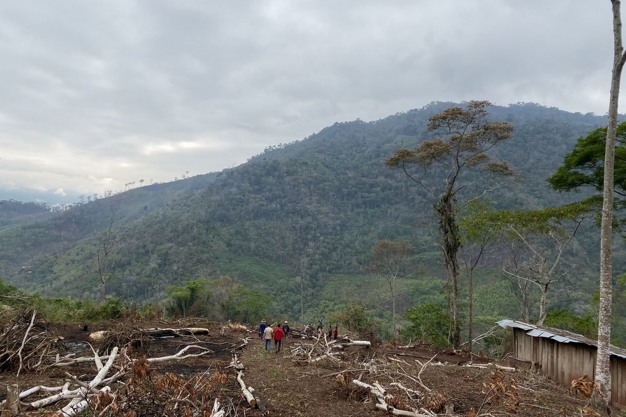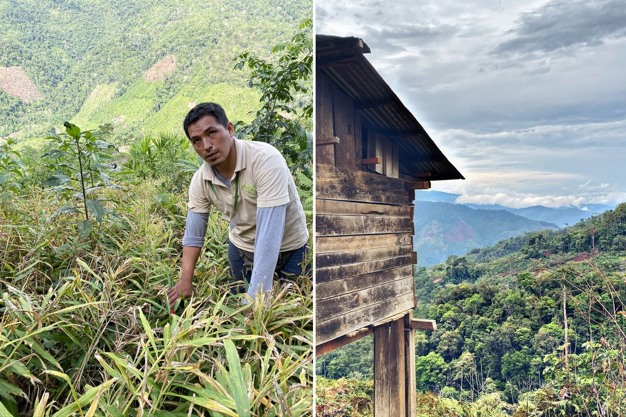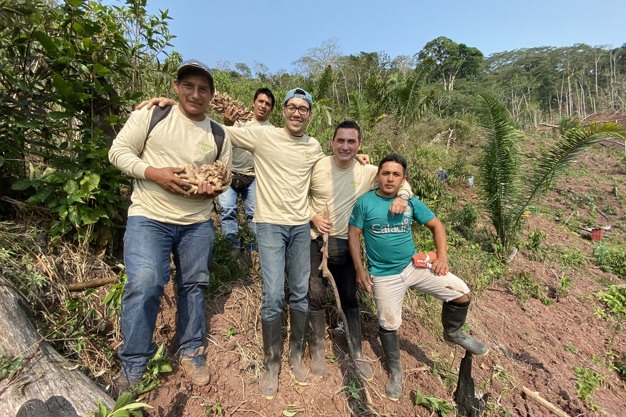Peru is a key supplier of organic ginger to the European and North American markets. However, many buyers don't seem to know what it takes for a grower to meet the organic requirements, in particular the requirements from the European market. "We are one hundred percent vertically integrated and have our feet in the dirt in Peru, yet it is increasingly difficult to meet the conditions Europe is requiring from us," says Cameron Mistal with Happy Veg.

Burning of soil
To grow organic ginger that meets European regulations, such as lower chlorate levels, non-existent fosetyl, and phosphonic acid levels, the product must be grown in soil that is not contaminated. The best and most abundant land for this is virgin soil. For most of the land to meet the requirements of basically being non-cultivated, a lot of burning of that land is taking place. Once the land or forest is burned, growers are only able to get a few organic ginger crop cycles out of that piece of land before the burning of new land is required again. In addition, strict regulations are causing ginger to become more susceptible to Erwinia, a contagious disease that causes ginger to rot. "It makes the raw material of fresh ginger unusable in value-added products such as juices, powders and purees, but it also becomes unusable as a fresh export product," shared Mistal. The lack of pesticides being used also causes this more natural ginger to be at risk of Erwinia and other issues. ProGinger Peru - an organization representing exporters and ginger / turmeric producer associations in Peru who have SENASA certificates - is working together with SENASA to develop a new ginger variety that won't be susceptible to the rotting disease.
"I just don't think EU regulators are aware of the high standards they've set," Mistal continued. Most Peruvian operators believe it's unsustainable to meet EU regulations. Not only are these strict regulations causing unsustainable farming practices, they are also encouraging farmers to shift to growing other crops, including coffee and cacao. These are less complicated to grow and generate more money.

Europe versus North America
Happy Veg has had their own ginger operations in the jungle of Peru for six years now and the company exports fresh organic ginger to both Europe and North America with about a 50/50 share. Compared to Europe, the U.S. and Canadian markets are a lot less stringent. Why does the company want to continue exporting to Europe? "It is very difficult for suppliers to meet the stringent conditions, but having our own operations down there makes a big difference. We are one of very few companies that are able to meet the EU standards and as a result, we accept the positive challenge of continuing our exports into the European market," Mistal admitted. In fact, Happy Veg has offices in both the U.S. and Europe, showing its commitment to both markets.
Other countries like China are also having a difficult time getting their organic ginger product accepted for the European market. According to results from analyses, most times organic ginger from China doesn't pass the test to enter the European Union or the U.S. market.

Regenerative agriculture
Due to the extreme difficulty installed by the heavy regulations and high standards in the EU, Happy Veg has started thinking about the future of organic ginger farming in Peru. "We believe we need to innovate through regenerative farming practices that allow us to give life back to the soil instead of taking it all away. Only this way, organic ginger farming in Peru will be sustainable for future generations." The concept of growing organically without destroying mother nature is more costly, in terms of money and time. This is a huge barrier for almost all companies in the jungles of Peru, Brazil and other international countries that look to offer competitive exotic products and differs from other products like coffee, cacao, and avocados. The investment into this path is heavy for all companies but is encouraged by both the EU regulators and US companies.
In the meantime, Mistal recommends buyers to do their due diligence and make sure they are working with legit suppliers of organic ginger. There is a large market of informal companies out there who support non-compliant employed workers and have a different perspective on food safety, compliance, certifications, etc.

Cameron Mistal, center, with a crew harvesting ginger in the jungle of Peru.
 For more information:
For more information:
Cameron Mistal
Happy Veg
Tel: (+1) 480-335-3842
[email protected]
www.happyveginc.com
